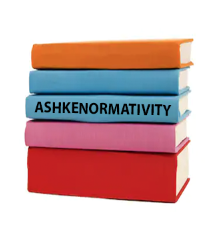
A Mizrachi Jew, from Memphis to Hillel
Zahava— with her mother who made kugel for shabbat and her father who went by Yonasan (not Yonatan); her pale, lightly freckled skin complimented by her dark, wavy hair (that was never certifiably curly but had the volume that suggested it easily could be); who had a grandfather on one side who was a holocaust survivor and a maternal grandmother whose accent was unmistakably “bubby,” especially when she tawked about her homemade applesawce—was my childhood neighbor, first best friend, and most accurate model of what it looked like to be an American Jew.
I grew up in a small, tightly knit modern-Orthodox Jewish community in Memphis, Tennessee. My mother is half-Yemeni, half-Hungarian, and my dad is Kurdish (Iraqi Kurds). Aside from a few non-white folk that came and went during my childhood, my parents, siblings and I were the only Mizrachim in our otherwise Ashkenazi community. In my fourteen years of day-school education, I never once heard a Jewish educator utter the word mizrachi. From a young age, it was obvious to me that I was different.



